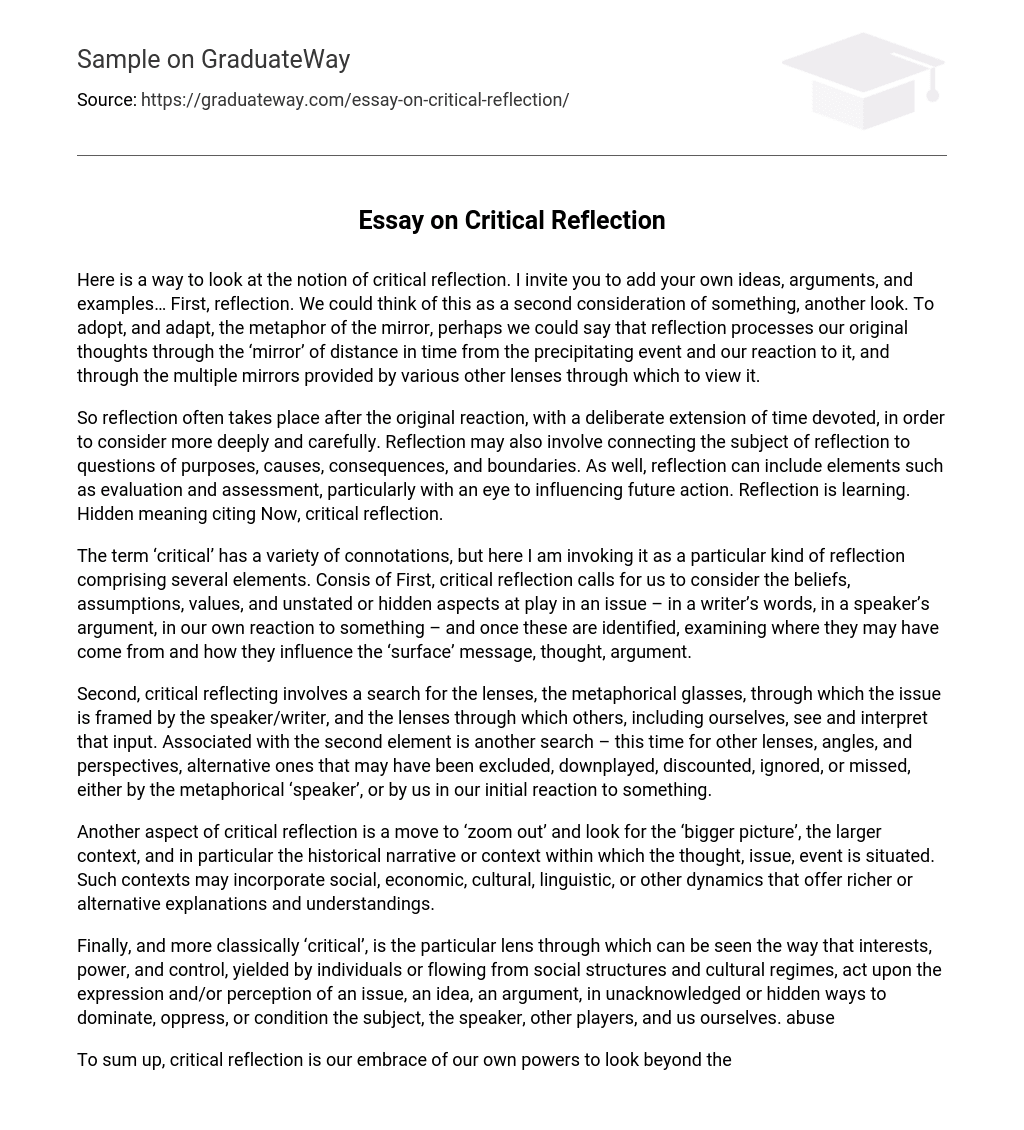Here is a way to look at the notion of critical reflection. I invite you to add your own ideas, arguments, and examples… First, reflection. We could think of this as a second consideration of something, another look. To adopt, and adapt, the metaphor of the mirror, perhaps we could say that reflection processes our original thoughts through the ‘mirror’ of distance in time from the precipitating event and our reaction to it, and through the multiple mirrors provided by various other lenses through which to view it.
So reflection often takes place after the original reaction, with a deliberate extension of time devoted, in order to consider more deeply and carefully. Reflection may also involve connecting the subject of reflection to questions of purposes, causes, consequences, and boundaries. As well, reflection can include elements such as evaluation and assessment, particularly with an eye to influencing future action. Reflection is learning. Hidden meaning citing Now, critical reflection.
The term ‘critical’ has a variety of connotations, but here I am invoking it as a particular kind of reflection comprising several elements. Consis of First, critical reflection calls for us to consider the beliefs, assumptions, values, and unstated or hidden aspects at play in an issue – in a writer’s words, in a speaker’s argument, in our own reaction to something – and once these are identified, examining where they may have come from and how they influence the ‘surface’ message, thought, argument.
Second, critical reflecting involves a search for the lenses, the metaphorical glasses, through which the issue is framed by the speaker/writer, and the lenses through which others, including ourselves, see and interpret that input. Associated with the second element is another search – this time for other lenses, angles, and perspectives, alternative ones that may have been excluded, downplayed, discounted, ignored, or missed, either by the metaphorical ‘speaker’, or by us in our initial reaction to something.
Another aspect of critical reflection is a move to ‘zoom out’ and look for the ‘bigger picture’, the larger context, and in particular the historical narrative or context within which the thought, issue, event is situated. Such contexts may incorporate social, economic, cultural, linguistic, or other dynamics that offer richer or alternative explanations and understandings.
Finally, and more classically ‘critical’, is the particular lens through which can be seen the way that interests, power, and control, yielded by individuals or flowing from social structures and cultural regimes, act upon the expression and/or perception of an issue, an idea, an argument, in unacknowledged or hidden ways to dominate, oppress, or condition the subject, the speaker, other players, and us ourselves. abuse
To sum up, critical reflection is our embrace of our own powers to look beyond the face value, the first impression, the expected reaction, to fashion a more inclusive picture, a more complete account, a richer understanding, while at the same time striving to identify the limitations of our efforts to do so – all in the interest of bringing about a more just and compassionate response to the world around us. sympathetic





